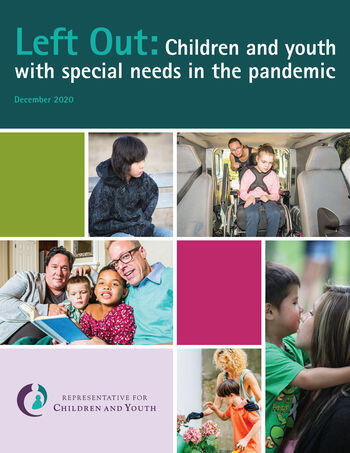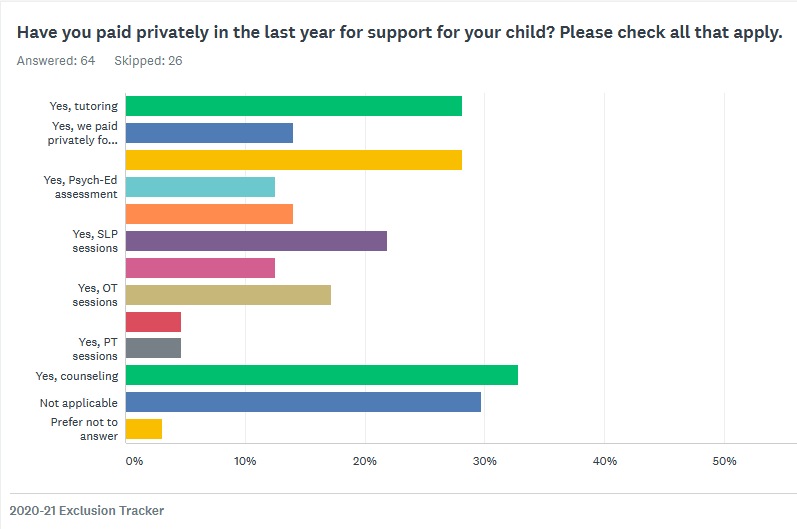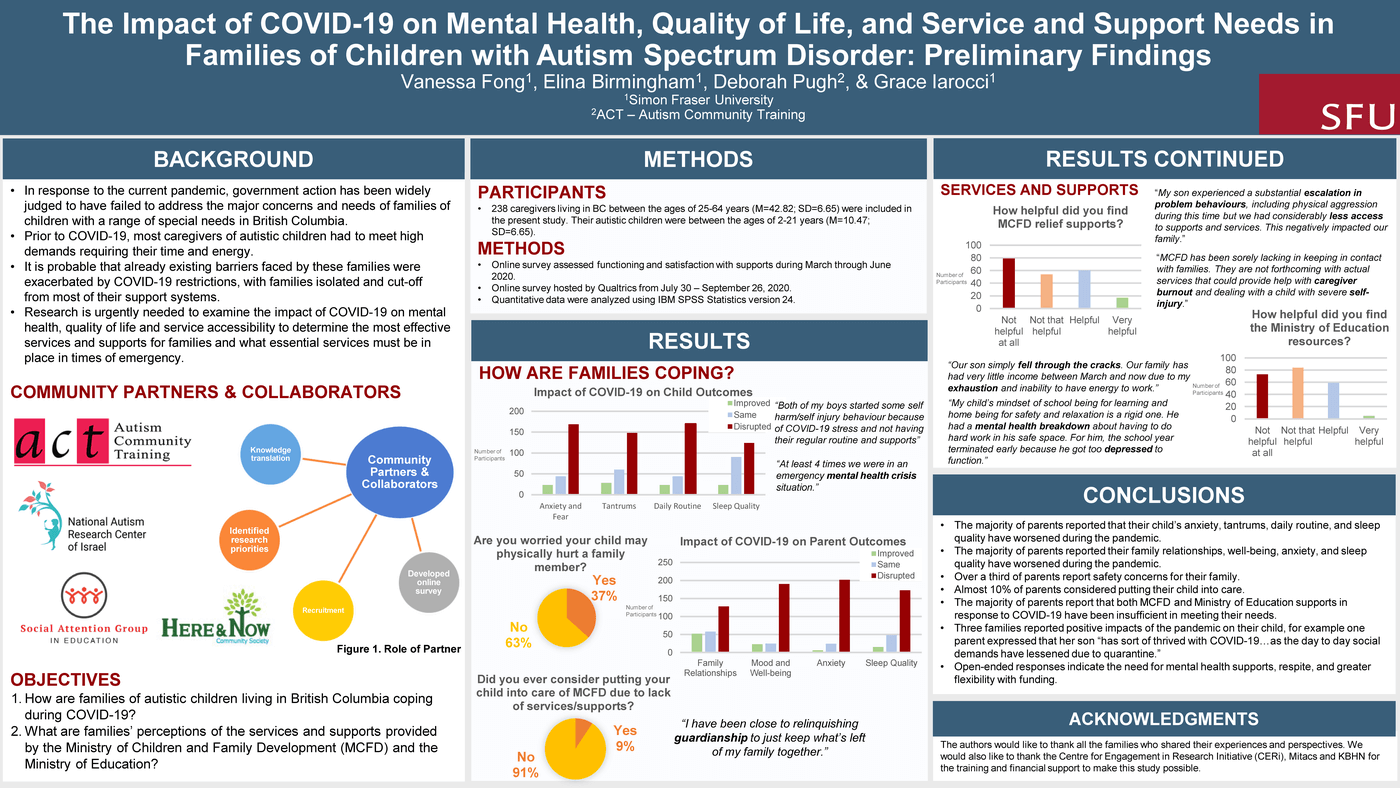“The COVID-19 pandemic has revealed the fragility of our support systems for children and youth, exacerbating long-standing problems and layering on new ones. For the tens of thousands of B.C. families who rely on supports and services for children and youth with special needs, the pandemic illuminated a crisis decades in the making.”
This is the opening statement in the latest report by the Representative of Children and Youth [RCY], ‘Left Out: Children and youth with special needs in the pandemic, a searing analysis of a shameful reality created by successive BC Governments.
The grim details of the report by the RCY, who is the watchdog on BC’s Ministry for Children and Family Development, reporting directly to the legislature, will ring true for families caring for children with special needs. But will the Premier or his MLAs pay attention? They have ignored wave after wave of criticism for months – most recently the shocking results of Simon Fraser University’s survey, released three weeks ago, which revealed similar findings of families under such extreme strain that nearly 10% have considered putting their children in foster care.
The RCY’s report also echoes SFU’s findings that families have had great difficulty finding out what services were available to them from the Children and Youth with Special Needs [CYSN] division of MCFD. Indeed, according to the RCY report, in the survey that the RCY did of over 500 families last month: “45 per cent of families had no contact with their CYSN worker during the six months [April to September] when emergency measures were in place, and 63 per cent report no contact since measures ended.”
Time to support all neuro-diverse children
At the very minimum, in response to the RCY’s report, steps must be taken to provide therapeutic services for children with Fetal Alcohol Syndrome, Attention Deficit Disorder, Intellectual Disabilities and other neurodevelopmental differences, as well as all the children with rare medical conditions who are forced to beg for charity in order to provide therapy or equipment for their children, because of decades of neglect of the At Home Program.
Child Development Centres across the province are chronically underfunded and unable to cope with the volume of requests, leaving the children of poorer families to go without the early intervention therapies they require. Just as the pandemic revealed the appalling state of many homes for the elderly, it is exposing the neglect of the poorest and most vulnerable at the other end of the age spectrum.
Minister Mitzi Dean – will she clean house?
A possible ray of light is that BC’s new Minister for Children and Families, Mitzi Dean, has hands-on experience in child protection. But, given MCFD’s chronic neglect of children with special needs, can she both reform child protection and services for children with special needs? Not to mention the need to reform services for Children and Youth with Mental Health needs, which have also been neglected within MCFD.
Is MCFD a failed experiment?
The perspective of many advocates is that MCFD, created in 1996, is a failed experiment. Minister Dean’s predecessor, Katrine Conroy, was fond of saying “Government moves slowly”, to explain MCFD’s failings, stressing what a large ministry it is. Certainly, families have not seen any change since the NDP government took power in 2017, after over a decade of neglect by successive Liberal governments. The focus of MCFD under the NDP has been largely on childcare, but even the childcare needs of children with disabilities have been ignored as waiting lists for Supported Child Care Development have ballooned.
The refusal of MCFD to engage in meaningful collaboration with advocates during the pandemic has led to a growing consensus that families caring for children with special needs can’t wait any longer – it is time to remove the responsibility for their children from MCFD. Minister Mitzi Dean is promising more collaboration, but much will depend on whether there is a shake-up among the senior leadership of MCFD in short order. The Tyee carried an important article by Katie Hyslop on MCFD’s new minister earlier this week and pointed out that MCFD may not change unless a more pervasive “new broom” is applied: “While ministers have changed, senior managers — like deputy minister Allison Bond, assistant deputy minister Cory Heavener and deputy director of child welfare Alex Scheiber — have remained in the ministry in recent years. All have worked for BC Liberal and NDP governments.”
The Tyee quotes Grant Charles, UBC Associate Professor of Social Worker, who explains that the senior managers have more sway over operations than the minister: “Technically it’s the minister, but one of the most powerful things about the civil service is their ability not to do something if they choose. So it doesn’t matter how good the minister is if there’s resistance at the civil service.”
When will the Special Needs Framework be revealed and will it be worth waiting for?
The response of MCFD’s leadership to criticism throughout the pandemic has been that the Special Needs Framework, which it promised would be funded and implemented eight months ago, will resolve all the long-standing issues that the Representative of Children and Youth’s successive reports have exposed. But the framework’s details are still a closely kept secret even if the systemic issues have been recognized for years. Long time observers of MCFD fear that the framework will be heavy on platitudes and short on action.
Meanwhile, the RCY’s report provides ample evidence that MCFD appears to lack the institutional capacity currently to listen to the families it supports, treat them respectfully and develop responsive policies. This echoes ACT’s experience: in two meetings with the previous Minister and current Deputy Minister, we found they had little understanding of how their own ministry functions. Deputy Minister Allison Bond was surprised that families who could not manage on minimal respite funds from the Children and Youth with Special Needs division of MCFD, had no recourse but to entrust their children to the Child Protection side of MCFD.
Despite ACT urging the Minister and Deputy Minister to communicate directly with families about the details of the emergency provisions, through the autism funding portal, it has never been used for this purpose. If families with autistic children had been provided clear instructions via the portal, this could have freed up social workers to concentrate on other families. Based on the behaviours of MCFD, few observers believe that there has been genuine commitment within its leadership to communication with families. This was certainly not the fault of individual social workers, who have a thankless task implementing directives made via press releases.
Follow the money in the February budget
It remains to be seen just what MCFD is considering within the new framework. As far as ACT is aware, no autism organizations were consulted in its development. So we are unsure whether it will even touch on the concerns that are specific to children with autism – 19,000 children as of June 2020, according to MCFD’s own numbers. We won’t know until the new budget is announced in February whether funding specific to implementing a new Special Needs Framework will be committed by the Minister of Finance. If not, families can expect no practical help from this new Minister for Children and Family Development.
Our thanks to the Representative
Families of children with special needs across BC owe a great debt of gratitude to Dr. Jennifer Charlesworth, the Representative for Children and Youth for bringing together organizations advocating for children across a range of special needs, including ACT, to work with her on this report. Perhaps it is time for advocacy organizations to bring together families across special needs/neurodiversity, a union of families to stand together to demand the therapies and equipment their children need to thrive?
What is your response to the Rep’s report?
Please email ACT in confidence at [email protected] and we will feature your opinions on our website. Or respond via Facebook.
Update from MCFD’s new Minister for Children and Family Development
MCFD’s new Minister for Children and Family Development, Mitzi Dean, has responded to the highly critical report issued December 3, 2021 by the Representative for Children and Youth. It is refreshing to see that Minister Dean wants to “hear directly from those who are affected. That’s why I have asked ministry staff to set up an advisory council to help ensure those voices are heard. I have also asked staff to expedite the implementation of the CYSN service framework and work to improve the system for struggling families throughout the province.”
In the lead up to the announcement of the new budget in February 2020, now would be a good time for families, and those that support them, to contact their newly elected MLAs to share their experiences of the “flexibility” demonstrated by MCFD throughout the pandemic.




 Earlier this week, ACT received an email from a BC mother of a six-year-old with autism who had been turned away from a grocery store. She explained:
Earlier this week, ACT received an email from a BC mother of a six-year-old with autism who had been turned away from a grocery store. She explained:




